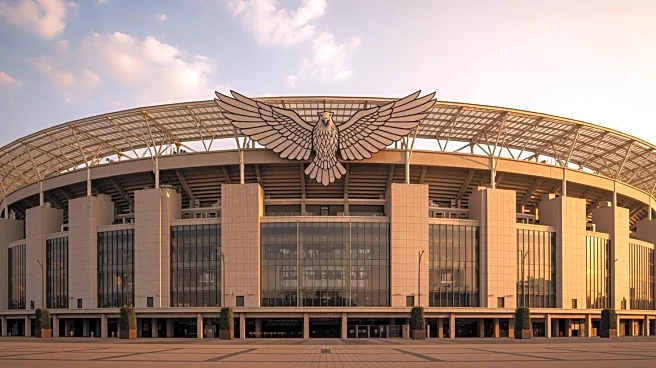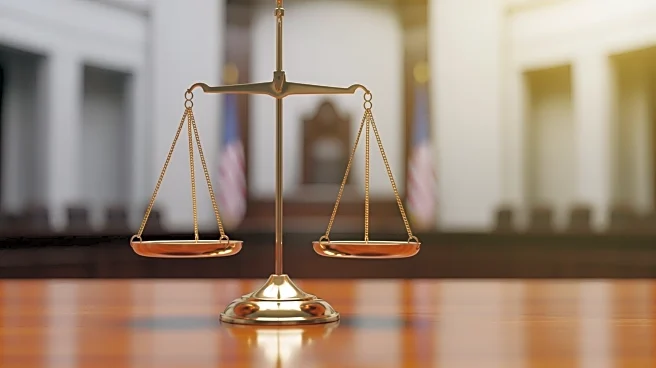What's Happening?
President Trump is set to attend the Washington Commanders' Week 10 game against the Detroit Lions at Northwest Stadium, marking the first time a U.S. president has attended a game at this venue since its opening in 1997. Reports have emerged that President Trump desires
the new $3.7 billion Commanders stadium, planned to be built on the site of the old RFK Stadium, to be named after him. The stadium is expected to open in 2030. According to sources, there have been back-channel communications between the White House and a member of the Commanders' ownership group, led by Josh Harris, regarding Trump's interest in the naming rights. The Commanders have not commented on these reports.
Why It's Important?
The potential naming of the Commanders' new stadium after President Trump could have significant implications for the team's branding and public perception. Naming rights for stadiums are often lucrative, and associating the stadium with a political figure could influence fan engagement and corporate sponsorships. The move could polarize fans and stakeholders, as reactions to the news have been mixed, with some expressing strong opposition and others showing support. The decision could impact the Commanders' financial strategy and their relationship with the local community and broader fan base.
What's Next?
As the stadium is not set to open until 2030, there is ample time for discussions and negotiations regarding its naming rights. The Commanders' ownership group may weigh the potential financial benefits against the public and fan reactions. Political leaders and community groups may also voice their opinions, potentially influencing the decision. The Commanders' management will likely consider the long-term implications of associating the stadium with President Trump, including potential impacts on ticket sales, sponsorship deals, and overall team reputation.
Beyond the Headlines
The naming of a major sports stadium after a political figure raises questions about the intersection of sports and politics. It could set a precedent for future stadium naming rights, where political affiliations play a role in branding decisions. This development may also spark discussions about the ethical considerations of using public spaces for political promotion and the potential cultural shifts in sports marketing strategies.














